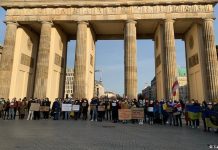Former Brazilian President Jair Bolsonaro was sentenced to 27years and three months in prison after being convicted of plotting a coup to remain in power following his 2022 election defeat.
The ruling delivered by a five judge panel of the Supreme Court makes the 70-year-old Bolsonaro the first ex-president in the country’s history to be convicted of attacking democracy.
Four of the five justices voted to convict Bolsonaro on charges including attempting to violently abolish democracy, organising a coup taking part in an armed criminal organisation and damaging government property.
Justice Carmen Lucia said Bolsonaro acted “with the purpose of eroding democracy and institutions”. One justice, Luiz Fux, dissented acquitting Bolsonaro and questioning the court’s jurisdiction an opening that could lead appeals and delay a final outcome ahead of the 2026 elections.
The conviction has drawn criticism from Bolsonaro’s ally US President Donald Trump who denounced the case as a “which hunt”. The Trump administration has already imposed tariffs on Brazil, sanctioned the presiding judge and revoke visas for several justices.
Brazilian authorities dismissed Washington’s response as an “attack on Brazilian authority”, bowing not to bow to external pressure.
Bolsonaro’s lawyers condemned the sentence as “absurdly excessive” and pledged to appeal. The former president, under the house arrest has repeatedly claimed he intends to run in the 2026 elections, though Brazil’s electoral court has barred him from office until 2030 for spreading false claims about the voting system.
The Supreme Court has also convicted seven Bolsonaro allies, including five military officers the first time in nearly 140 years of the republic that military officials have been punished for conspiring against democracy.
Analysts say the verdict is a watershed moment for Brazil’s institutions along plagued by the spectre of military intervention.
Bolsonaro’s rise from a fringe congressman to president was fuelled by anti-establishment anger during the “Car Wash” corruption scandal. His presidency was marked by controversial stances on the pandemic, deforestation in the Amazon and repeated on Brazil’s democratic institutions.
Supporters see the verdict as a political persecution, while President Luiz Inacio da Silva’s government argues it upholds the rule of law.
Lula’s institutional Relations Minister Gleisi Hoffmann said the ruling “ensures no one dares again to attack the will of the people as expressed at the ballot box”.
Historians say the trial signals a turning point. “The trial us a wake-up call for the armed forces”, said Carlos Fico of the Federal University of Rio de Janerio. “There was never punishment before now, there is”.

























































